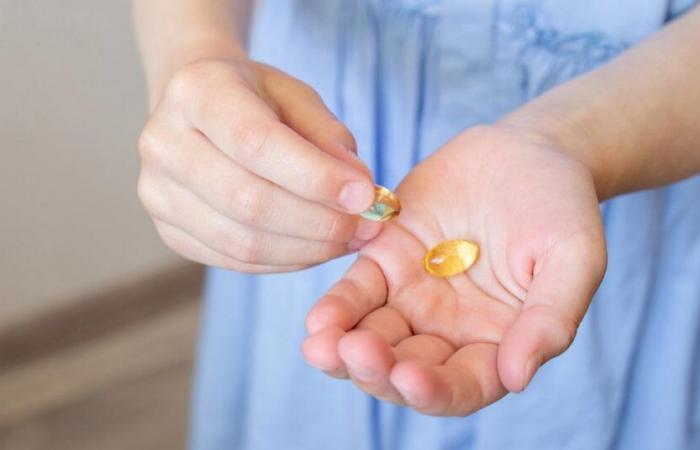A study of the Konsumentenschutz and the Haute École specialized Bernese reveals that food supplements for children, often having the appearance of candy, are frequently overdosed in vitamins. What create a real risk to health.
Some 30% of the population residing in Switzerland consumes food supplements, vitamins or minerals, according to a study by the Federal Office for Food Security published in 2022. What about children? The Haute School Specialized in Bern and the Konsumentenschutz have looked into the issue.
During exams or as seasonal viruses are approaching, parents sometimes turn to vitamin supplements. The problem is that these products evoke sweets. They have the appearance of sweets, gums or sweet syrups, which makes us forget that these are food supplements. The other problem is that most of these supplements, over -the -counter in supermarket and pharmacy, are overdosed in vitamins.
Some vitamins at risk of overdose
“Certain vitamins, such as vitamins B and C, have little risk of overdose because they are generally evacuated by urine. Other vitamins are rather stored in the body, such as vitamins A, D, E and K. It is better to ask a dietitian or a pediatrician for advice before consuming it,” explains Angeline Chatelan, nutrition researcher and From Geneva, in the show we talk about it from April 29, 2025.
How is it a problem to store too many vitamins A, or even k in the body? “There are risks proven in the medium term nausea, diarrhea, headache and muscle and joint pain. In the event of long -term overdose, there may be risks for the liver, heart, lungs and kidneys,” replied Angeline Chatelan.
“Each country fixes recommendations according to age, from birth to old age. For example, it would take around 500 milligrams of vitamin C per day for children. Complements should not exceed these values.” Dosages on the packaging of food supplements are often imprecise. Faced with the risks of self-prescription, the specialist advises to buy them in pharmacies and consult a pediatrician or dietitian.
During examination period, some parents bet on food supplements for concentration or memory. Does it really work? “Studies are not clear. In general, the supplements work well if you have a proven deficiency. If this is not the case, they show rather than taking vitamins does not really have health benefit.”
Vitamin D in winter, an exception
In Switzerland, even if we have a balanced diet, there are risks of vitamin D deficiency, especially because of our cold and covered winters. “The two main sources are exposure to the sun and food. However, in Switzerland, we have little sun in winter and our body is mostly covered. The other source of vitamin D is food, mainly fatty fish. In Switzerland, we are not used to eating fatty fish every day. There is therefore a risk of deficiency. OSAV recommends that children up to 3 years to have vitamin D supplementation.”
What advice to parents to avoid an accidental overdose of vitamins in their children? “In general, when you eat everything – vegetables, fruits, meats, fish and starchy foods – there is no risk of deficiency. The exception is iodine. It is important to take iodized salt,” replies Angeline Chatelan.
Subject Radio: Samuel Socquet
Adaptation Web: Myriam Semani






